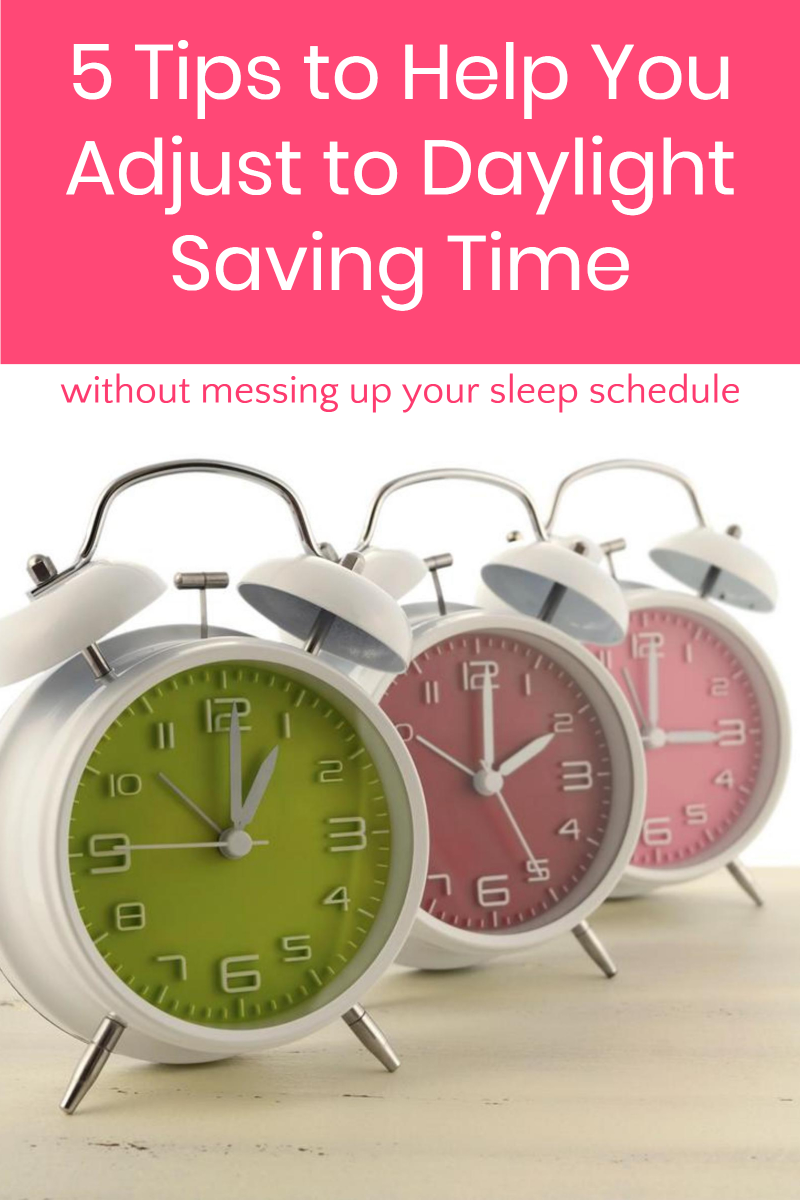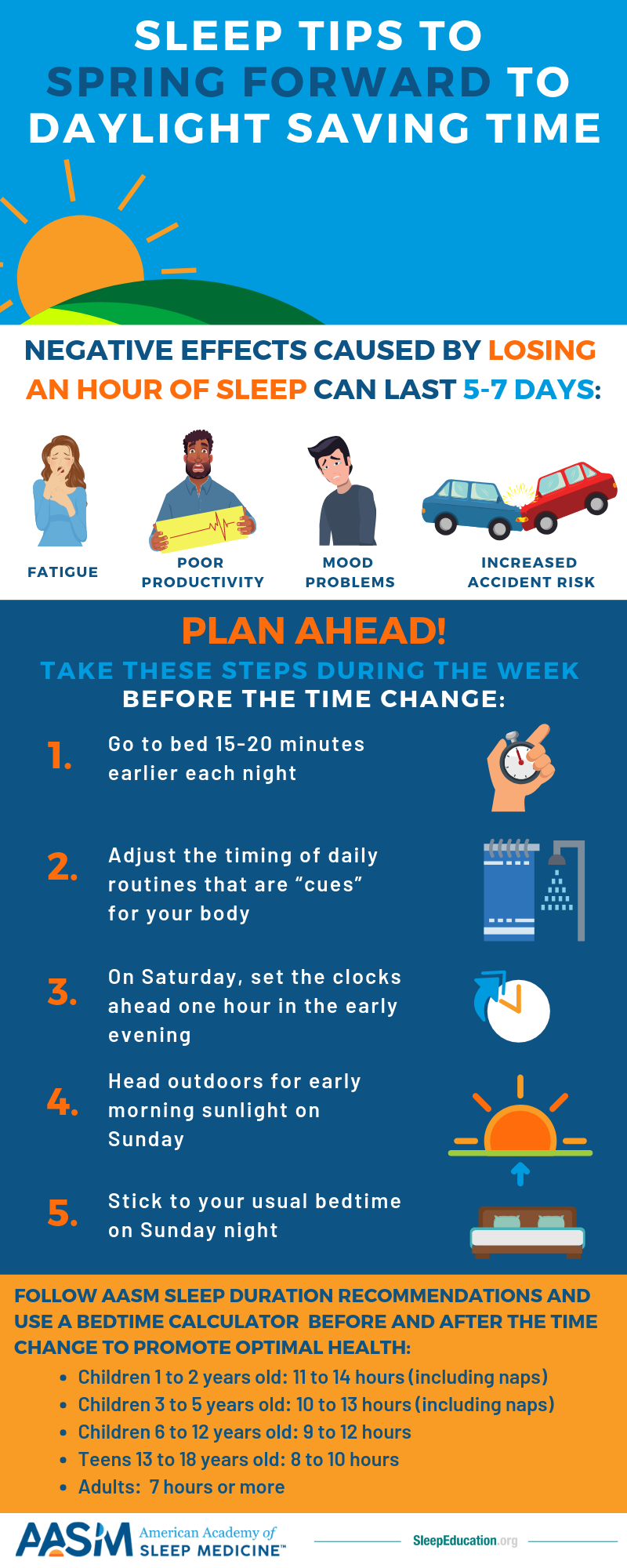This post is sponsored by the American Academy of Sleep Medicine. All opinions (especially about daylight saving time) are my own.
I am not a fan of daylight saving time. There. I said it. I know so many people absolutely adore it. “It’ll be light outside longer!” they proclaim. “It means spring is almost here!” they say. Well, let me tell you something else that may shock you: I prefer it when it gets dark out at 4PM. I love nighttime. I prefer winter to summer, fall to spring, sweaters to bathing suits.
I also like my sleep. Really like it. Daylight saving time robs me of an entire hour of my life right when I need it most: in the middle of the night. Sure, sure, you “get it back” in the fall, but that does me no good when I feel like I’m jet-lagged for a month after the clocks “spring ahead.” I’m not even kidding, it takes me forever to adjust to the loss of that single hour.
Am I alone in that? I don’t think so. Millions of Americans are already failing to get enough sleep every night, so that single hour has a huge impact. Whether you’re among the chronically sleep deprived or just have a hard time adjusting to change, the following tips will help you cope with daylight saving time (which begins on March 10th). FYI, it is just “saving,” not “daylight savings time.” For 40+ years of my life, I thought there was an “s” t the end.
5 Tips to Help You Adjust to Daylight Saving Time
Take a peek at this handy infographic for a quick overview of sleep tips to help you spring forward, then read on for more details! FYI, you can download a PDF version of the infographic by clicking on it.
1. Know how much sleep you really need
It’s hard to get enough sleep when you don’t know how much you actually need. We’ve all been told time and again that we need 8 hours of sleep each night to be truly functional, but it’s not quite as simple as turning in at 10PM and waking up at 6AM. For adults, the American Academy of Sleep Medicine (aka AASM) recommends 7 or more hours of healthy sleep on a regular basis (as in, most nights) for optimal productivity, alertness, and overall health.
Remember, that’s for adults. Kids and teens are a different story. My 13-year-old son, for example, needs 8-10 hours of sleep. Use the AASM bedtime calculator to help you find the ideal bedtime for everyone in your family.
2. Start adjusting your sleep and wake times before DST begins
Rather than waiting until the night of DST to turn in early, AASM recommends shifting your bedtime 15-20 minutes earlier for each night starting about 2-3 nights beforehand. Daylight Saving Time begins on March 10th this year, so if your normal bedtime is 11, it would look something like this:
- March 7th- Go to bed at 10:45
- March 8th- Bed at 10:30
- March 9th- Lights out a 10:15
- March 10th- 10PM bedtime
With each increment, set your alarm for 15 minutes earlier, too. If you typically wake up at 7AM, by March 10th you’ll be setting your alarm for 6AM (which, to your body, is really 7AM). Then, repeat the process in reverse until you’re back on track.
3. Do the same thing with your routine
Just adjusting your bedtime may not be enough to tell your body, “hey, we’re springing ahead, so get ready!” You should also change your routine with it. For example, eat dinner and/or start your bedtime ritual 15 minutes earlier each day leading up to DST. Do the same with your bedtime routine!
4. Change the clocks ahead early
On March 10th, rather than waiting until morning to set your clock ahead, do it early evening, then go to bed at your “normal” bedtime (according to the changed clock). That way, you’ll get your full night of sleep.
5. Step into the sun
On Sunday (and for the next few days after), head outdoors into the sunshine for a few minutes. Sunlight plays a very important role in regulating your internal clock and telling your brain that it’s time to start your day.
Sleep is essential to your well-being
Did you know that sleep is one of the three pillars of a healthy lifestyle, along with diet and exercise? Healthy sleep can improve every aspect of your life. Even one lost hour can have an impact. When I stay up late on a Friday night (even if it’s just an hour late), I feel off the whole next day.
Chronic sleep deprivation- or even just chronic low-quality sleep- can increase your risk of heart disease, stroke, high blood pressure, type 2 diabetes, and a host of other physical and mental conditions. Some evidence suggests that it can even contribute to Alzheimer’s disease.
If you’re already suffering from a lack of quality sleep, that one hour change can have an even greater impact. Check out this article to learn more about what constitutes healthy sleep.
Join the World Sleep Day Twitter Chat
Join AASM on Friday, March 15th (World Sleep Day) to learn more about the importance of sleep and how you can minimize the effects of daylight saving time! You’ll even have a chance to win a $100 gift card while you’re at it!
Follow along with @_WorldSleep using the #WorldSleepDay and #HealthySleepChat hashtags!
How do you get ready for Daylight Saving Time? Tell me if you do anything special!





This is good information. I hope I don’t forget to change the clock, and knowing it should take about a week to get accustomed to it, too.
These are great tips. I honestly wish they would leave the time alone!
Great tips! Very helpful for adjusting to the time change!